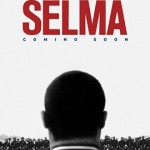“Selma” is one of those fairly rare films that underline a crucial time and place in history while thrusting important issues forward to the present day.
Ably directed by Ava DuVernay, the movie depicts the fight for the Voting Rights Act culminating in the dramatic march across the Edmund Pettus Bridge in Selma, Ala. in 1965. It portrays the brutality and racism that kept Alabama’s white power structure firmly in charge and how brave, non-violent and very smart tactics by African-American agitators shook things loose.
Holding it all together is British actor David Oyelowo as Dr. Martin Luther King Jr. Oyelowo’s subtle and vulnerable approach while dealing with infighting among his colleagues and revelations of his marital infidelities contrast with his brilliant skill at oratory. During the two hours or so of the film, Oyelowo’s booming speeches and sermons never bored me. By contrast, the recent “Lincoln,” the Steven Spielberg flick filmed in Richmond, was a bit of a snoozer.
To its credit, “Selma” never gets too clichéd even with the extremely overexposed Oprah Winfrey assuming roles as a film producer and also as an actress portraying a middle-aged nursing home working who gets beaten up several times protesting white officials who kept her from registering to vote.
“Selma” has been controversial because nit-picking critics claim the film misrepresents the role President Lyndon B. Johnson played in getting the Voting Rights Act passed. The film shows him as reluctant and the Selma event was staged to push him to move proposed legislation to Congress. A series of LBJ biographies by highly-regarded historian Robert A. Caro show the opposite – that Johnson, a Southern white from Texas — was very much the driver of civil rights bills. In fact, his deft ability to knock political heads on Capitol Hill was probably the reason why they passed. It was a feat that even the Kennedys probably couldn’t have achieved.
One scene in the movie bothered me at first. King leads protestors to the Selma court house to register. When a brutal sheriff stands in their way, they all kneel down on the pavement with their arms behind their heads in a manner very reminiscent of last year’s protests against a police killing in Ferguson, Mo.
I thought, “Hey, I don’t care how they present LBJ, but fast-forwarding to 2014 is a bit of stretch.”
Then I decided that maybe not, history aside, the same thing is really happening now. There’s not just Ferguson, but Cleveland, Brooklyn and other places. The Richmond Times-Dispatch reports this morning that over the past 14 years, police in the state killed 31 blacks and 32 whites. Only 20 percent of the state’s population is black. Now that is a disturbing figure.
Another disturbing allusion to the present is the widespread move mostly by Republican politicians in the South and Southwest make it harder for people to register to vote. In one move scene, Oprah Winfrey wants to register before an arrogant white clerk. He asks her to recite the Preamble to the U.S. Constitution. She does. He then asks her how many judges there are in Alabama. She gives the correct number. He then demands that she name all of them, which very few might have been able to do. She is rejected.
The moves to blunt new voters today is focused more on Hispanic immigrants but it is just as racist and wrong. And, Virginia is still stuck with the anti-voter policies of the Byrd Organization that was in power at the time of the Selma march. The idea, equally racist, was to keep ALL voters from participating in the political process as much as possible. That is why we have off-year elections and gerrymandered districts.
I was only 12 years old when Selma occurred but I remember watching it on television. I was living at the time in West Virginia which didn’t have that much racial tension. But I do remember flying out of National Airport in DC on the day that King was assassinated. The center of town, mostly 14th Street, appeared to be in flames.



